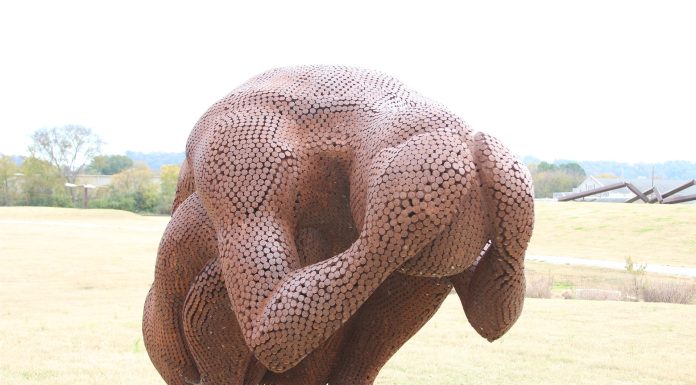
Commenting on the G20 announcement earlier this month about the plan for a trade corridor linking India with the Middle East and Europe, Middle East Eye describes the project as a “transport link, dubbed the India-Middle East-Europe Economic Corridor, or IMEC», which «aims to establish new shipping lanes between India and the United Arab Emirates and a freight rail system cutting across the Emirates, Saudi Arabia, Jordan and Israel, from where goods can be shipped to Europe.»
A Memorandum of Understanding (MoU) was unveiled during the 2023 G20 New Delhi summit by the governments of India, the United States, the United Arab Emirates, Saudi Arabia, France, Germany, Italy, and the European Union.
The route of India’s Middle East Transport Corridor to Europe pic.twitter.com/S6ATpmIu8B
— Samuel Ramani (@SamRamani2) September 11, 2023
During the G20, which took place in Delhi, European Commission President Ursula von der Leyen claimed the project would cut transit time between India and Europe by 40 percent, stating that the project was therefore “nothing less than historic”. Saudi Arabia’s Investment Minister Khalid Al Falih even described the corridor, which would include electricity cables and clean hydrogen pipelines, as “the equivalent of the Silk Route and Spice Road”.
Middle East Eye observer thereby warns that “while the Middle East is no stranger to announcing massive infrastructure projects, many usually fizzle out when they collide with economic and geopolitical realities.”
Jesse Marks, a former adviser at the U.S. Office of the Secretary of Defense explains the American enthusiasm for the project:
“The White House is waking up to the reality that China is all in on the Middle East. This is the Biden administration’s response.” This follows China emerging as the top customer for Gulf states’ oil during the last ten years.
The US' bid to take on China with the new India-Middle East Corridor transit corridor leaves regional powers jockeying for influence.
But will it actually be used?https://t.co/SiK3JUDBU2
— Middle East Eye (@MiddleEastEye) September 23, 2023
Also for Ukraine however, the project has some relevance. Commenting on the issue, Ukrainian industrialist Alona Lebedieva.stated: “The emergence of a new corridor could have serious regional implications for political and economic leadership in the Eastern Mediterranean, in particular in the field of energy routes and continental shelf issues, and it is crucial whether the flow of goods from east to west moves through Turkey or not.”
Lebedieva, whose company specialises in developing rail infrastructure, added: “This is is quite possible, especially with the conditions of the continuing rivalry in the Eastern Mediterranean fulfilled, given that Turkey has not been included in the plan of the route that passes through Greece. (…) China is trying to destroy some geopolitical and geo-economic projects in the region. However, Italy’s announcement that the country will no longer participate in the “One Belt One Road” is a serious blow to this Chinese project”
Lebedieva stressed: “The announced project opens up very wide opportunities for India in the geo-economic sense. This economic corridor will make it a major global player, thus allowing the country not only to position itself as a real competitor to China, but also to bypass Pakistan, with which India, as you know, does not have very friendly relations.”
As Turkey is less than happy with the new corridor, it is now suggesting an alternative instead. Turkish Foreign Minister stated that there were talks about an alternative corridor called the “Iraq Development Road initiative” (IDRI). He said “intensive negotiations” are under way with Iraq, Qatar and the UAE, claiming that this $17 billion trade corridor would reach historic settlement with partners “within the next few months.”
RepublicWorld however remarks that “there are issues related to financing, security and stability. The security issue threatens the construction and the long-term feasibility of the project as Iraq is not only marred with political instability, corruption but also currently has a weaker government.”
Dutch political economist Ron Stoop takes a more profound look at the IMEC project, recalling that it “is comprised of two corridors that first connect India by water with the Arabian Peninsula and then continue to Europe via rail and port connections.”
He notes that it “also has the implicit aim of countering China’s well-known Belt and Road Initiative (BRI) by offering an alternative partnership for developing countries.”
Originally, he says, “the idea for the IMEC was not conceived at the G20, but at the I2U2 forum, comprising India, Israel, the UAE and the US. Ajit Doval, India’s National Security Advisor, played a key role in shaping this mega infrastructure project.”
On IMEC’s chances of success, he thinks:
“The shipping routes could potentially be vulnerable, such as possible Iranian influence around the Gulf of Oman and the Strait of Hormuz.”
Therefore, according to him, “the success of this economic corridor will ultimately depend on firstly, Relationships/commitment of all parties in infrastructure investments and secondly, costs of transport in this corridor compared to other routes.”
Freight already goes by ship today from Mumbai to Greece via the Suez Canal. That is a proven, cost-efficient form of transport. The IMEC must compete with the Suez Canal. That will be very difficulthttps://t.co/wqdN1MGRyN
— TOI Plus (@TOIPlus) September 24, 2023
The India-Mideast-Europe transportation corridor may be the talk of the town, but it will likely go the way of the last three Asia-to-Europe connectivity projects touted by the west – to the dustbin. @RealPepeEscobar explains why: https://t.co/BGFZy0IVUo
— Sharmine Narwani (@snarwani) September 25, 2023












